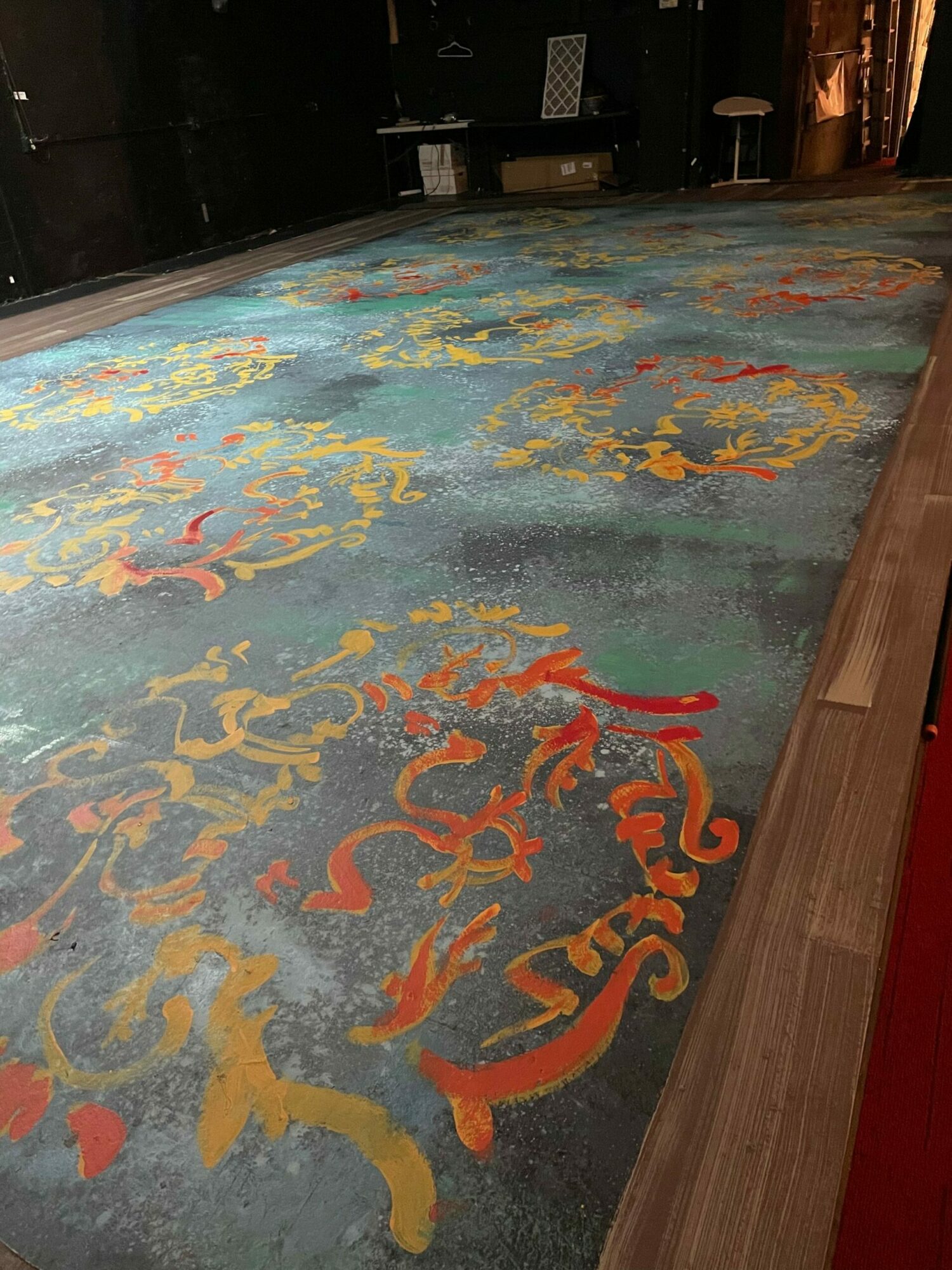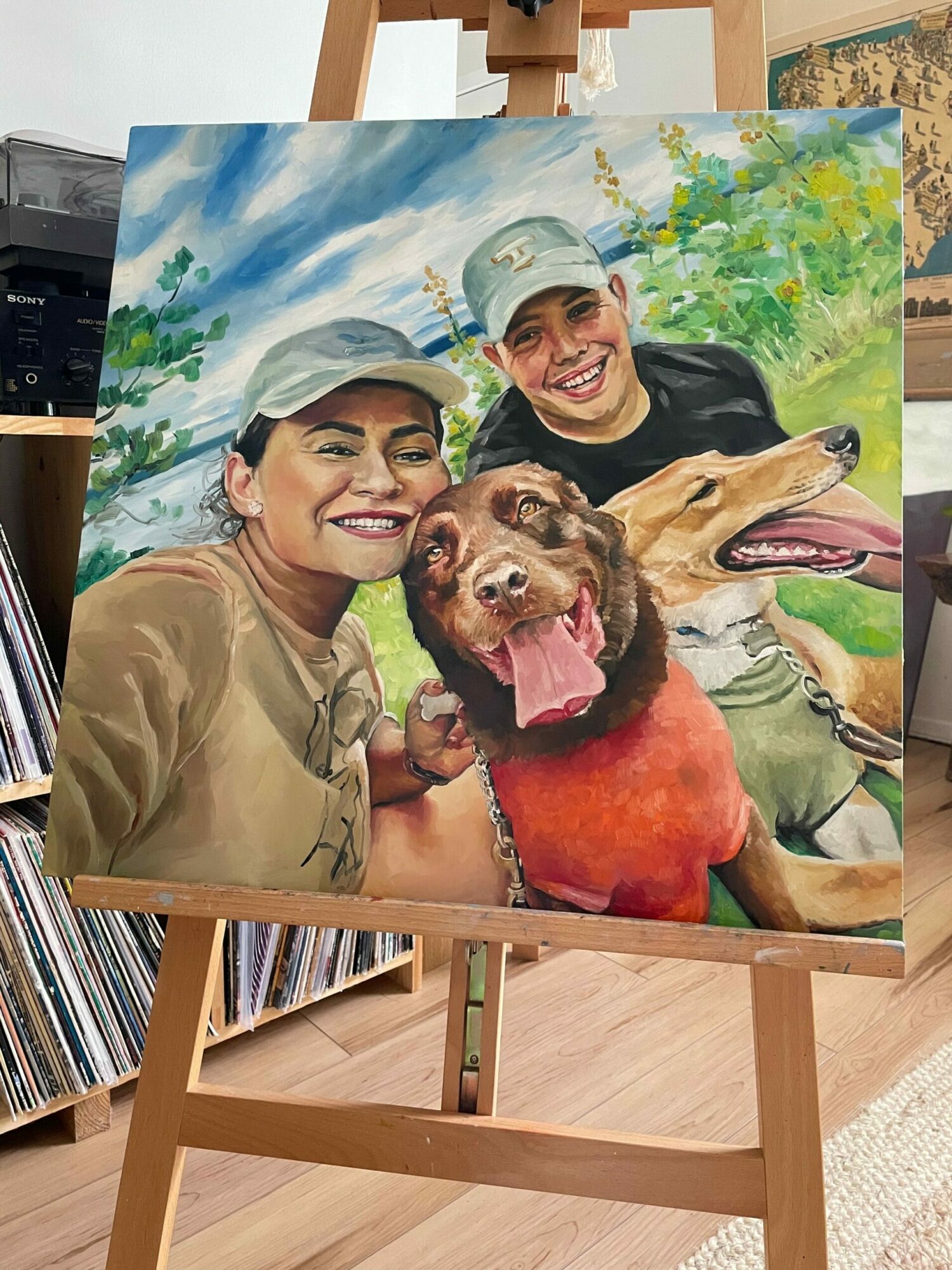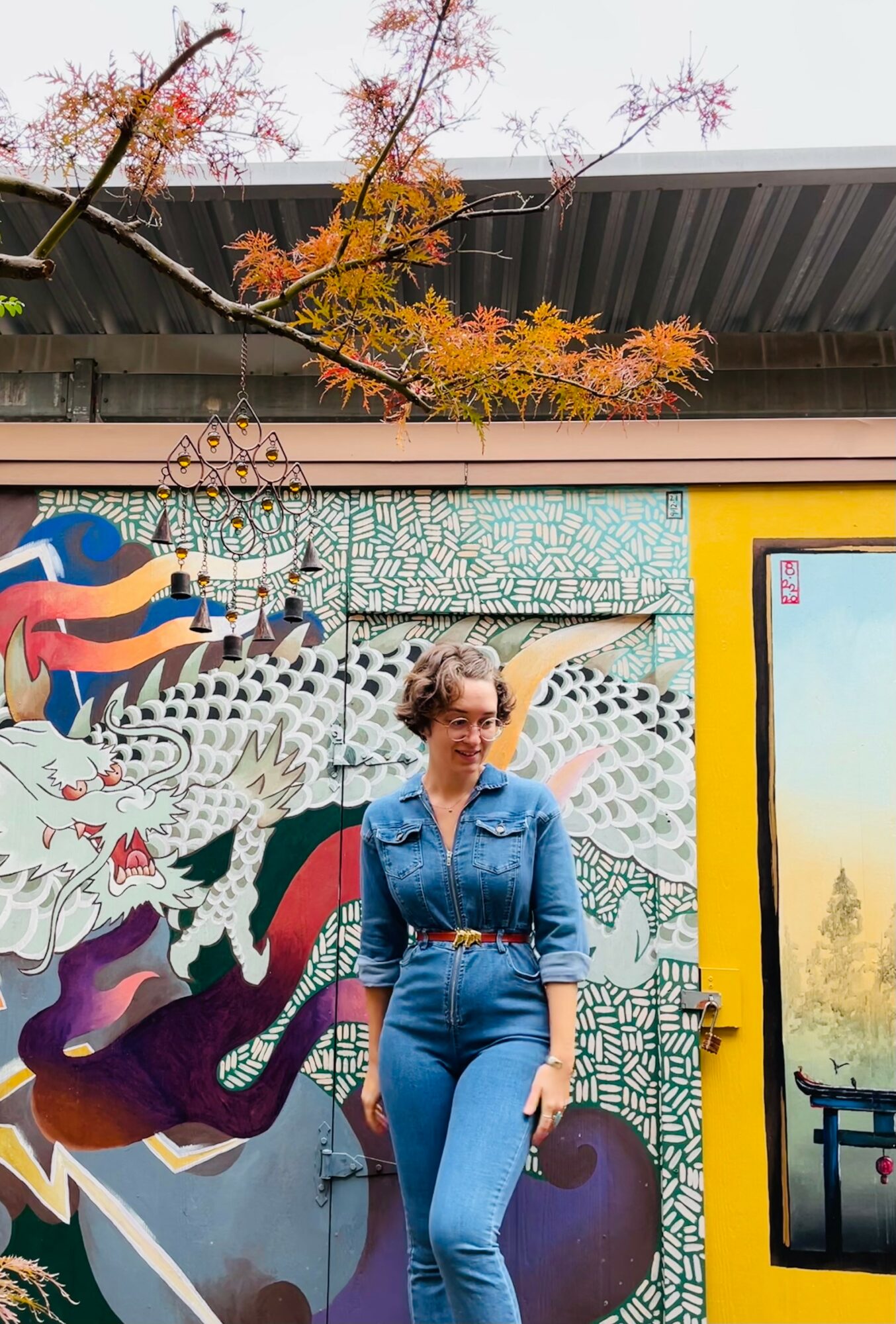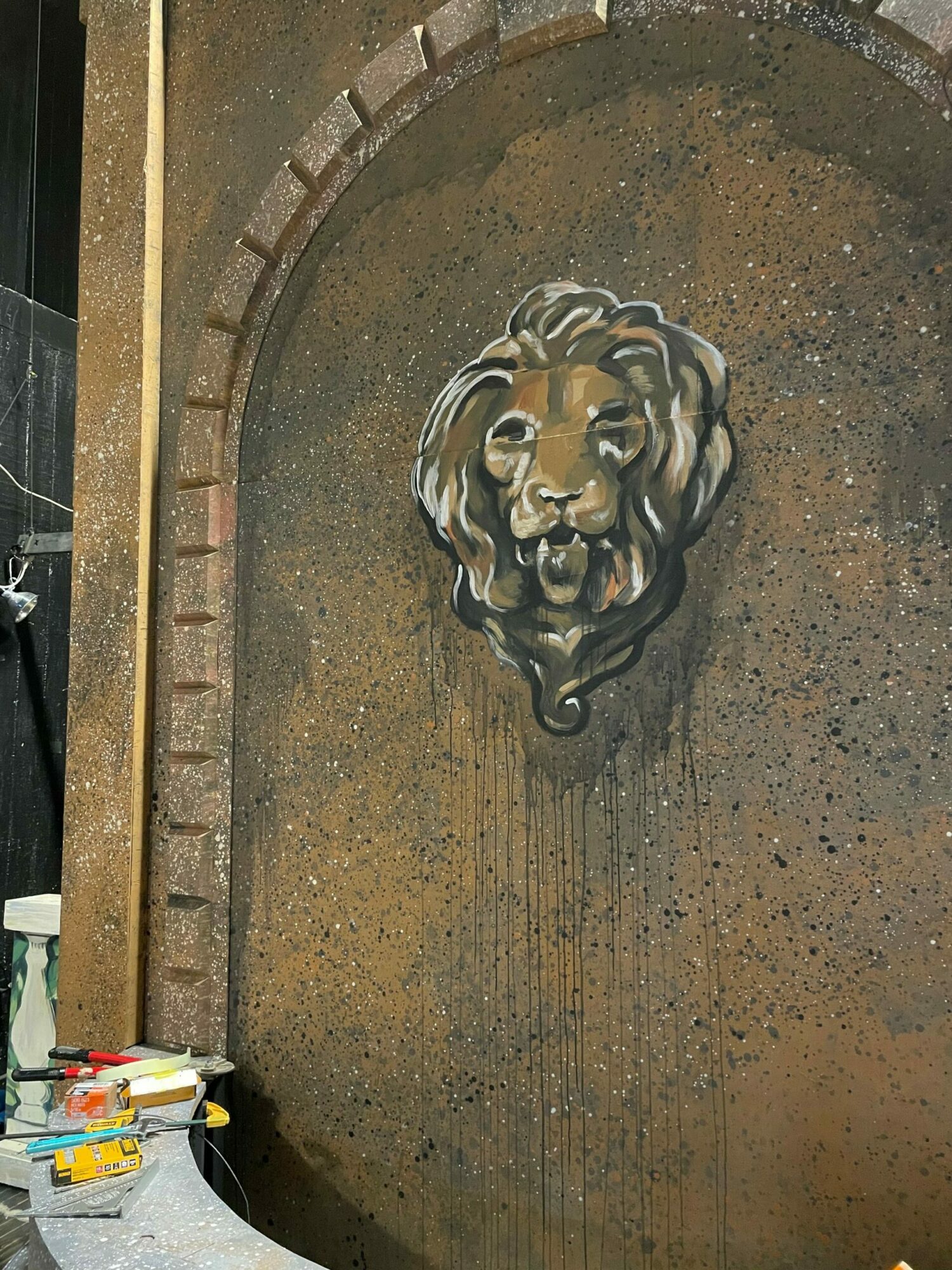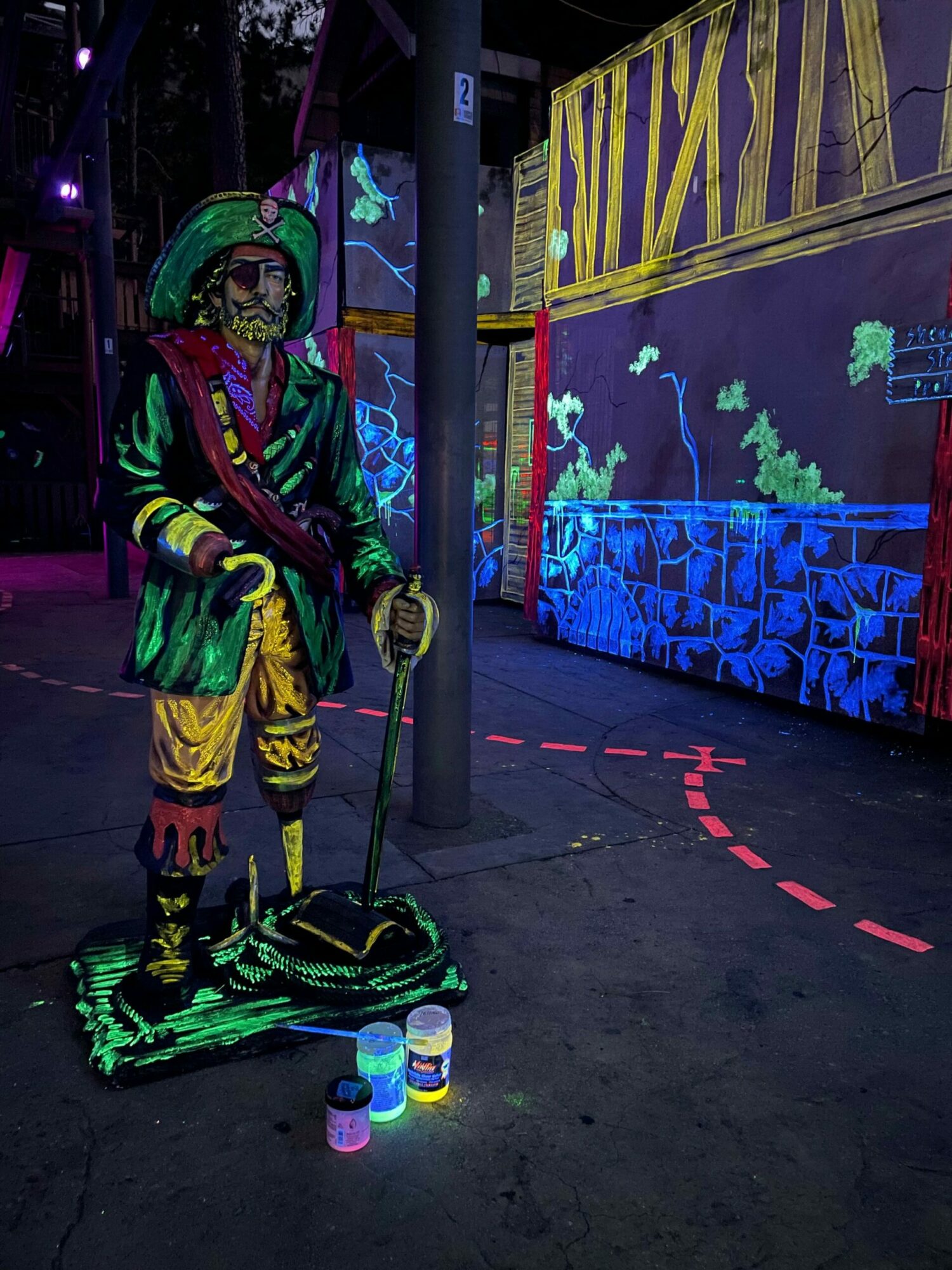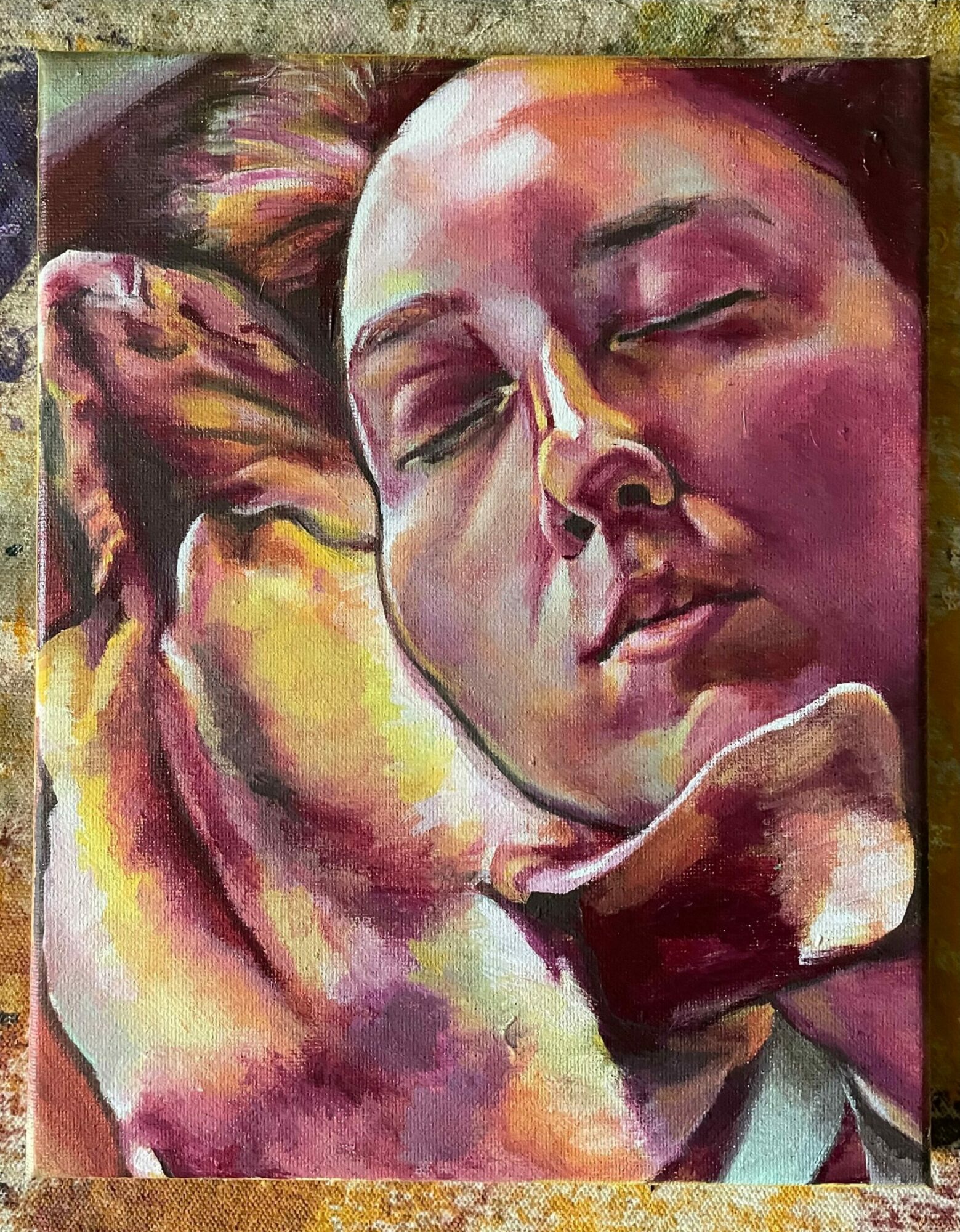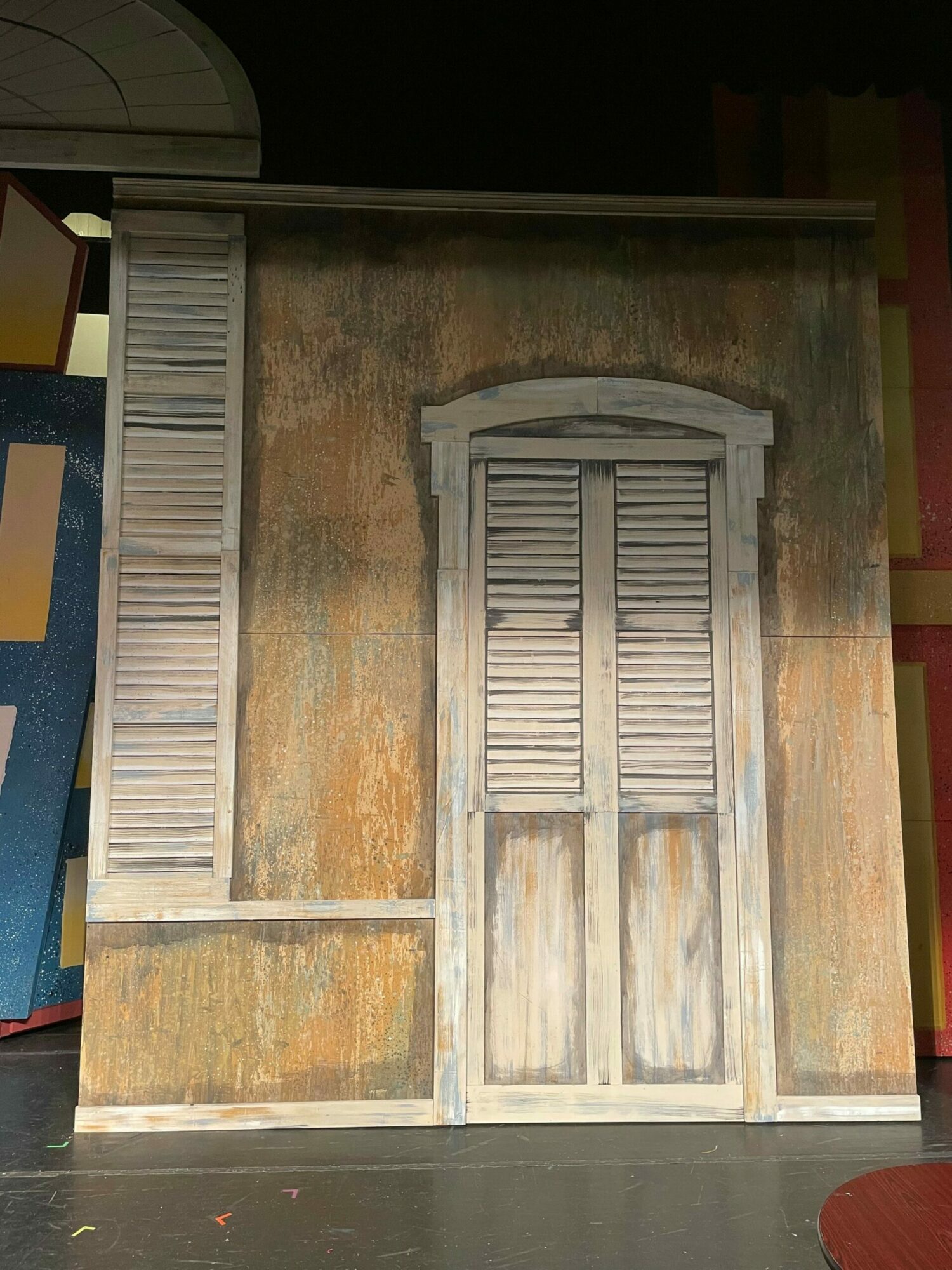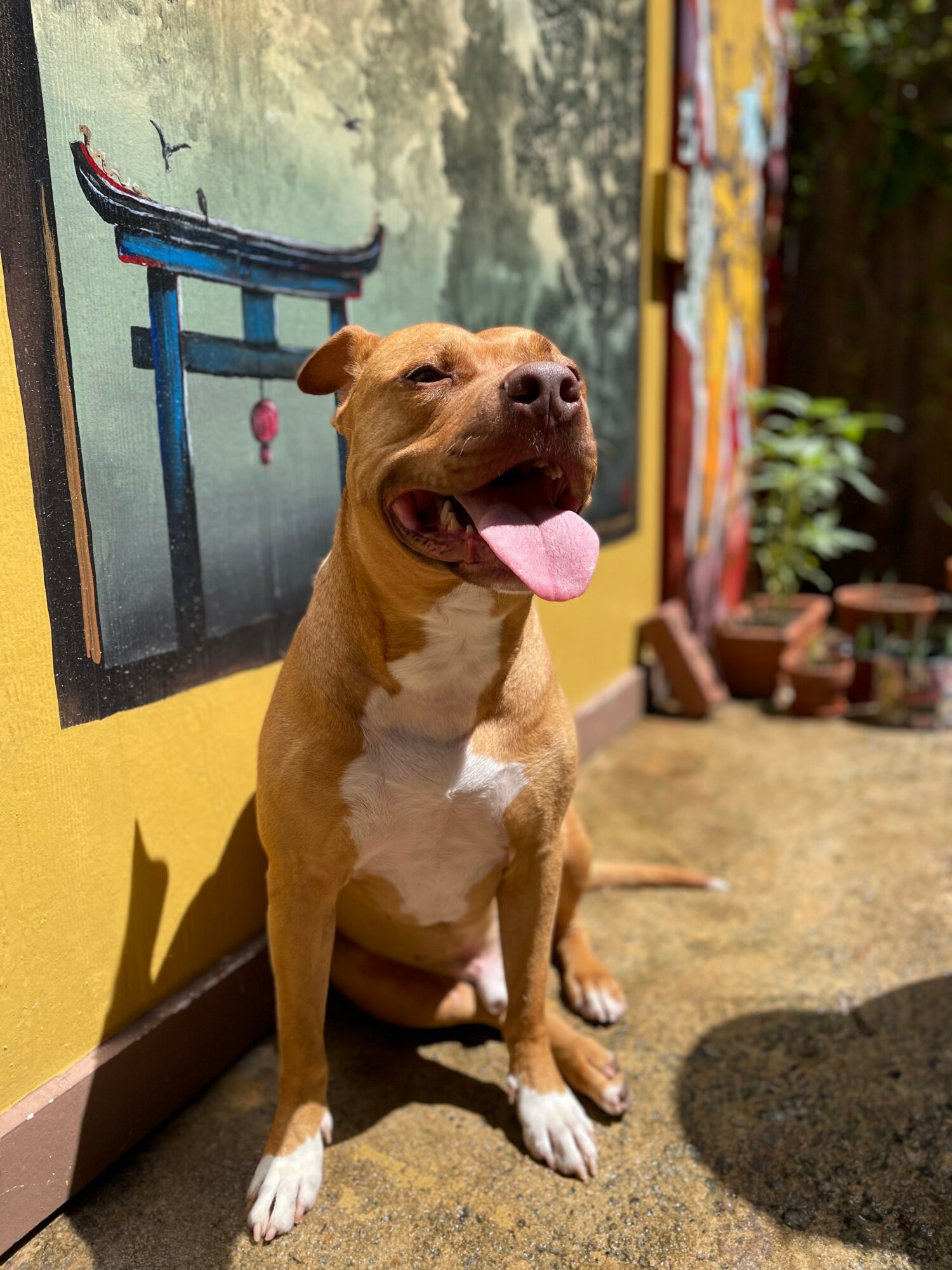

Today we’d like to introduce you to Stefnie Cerny.
Hi Stefnie, please kick things off for us with an introduction to yourself and your story.
The idea of creating, making, using my hands to visually interpret the elaborate colors and shapes in my mind stems from early childhood. Little Stefnie could never imagine her present working as a freelance scenic artist and fine artist, painting for theatres across Atlanta. It never struck me as a young person to pursue art as a career since the preconceived notion of the starving artist was all I knew. Members of my family showed creative potential here and there, but none of them actually went to college for art, let alone college. Doodling, painting, or sculpting found their way in every aspect of my existence, with heavy support from my parents. My bullies and friends alike gave praise for the things I created, but how could I fit this into adulthood? I had no one to look up to, only the push from those around me to pursue art and expand upon the potential I always showed. A friend in high school, graduating a year before me, mentioned Virginia Tech (only 40 minutes from my hometown) accepted her into their business program. She suggested I go there because she could see me… plus it had an art program. What I would eventually recognize as the leading decision maker in my life, my gut said go apply. I got in, did a semester, but noticed many of my fellow classmates took on secondary majors to boost their art degrees and make them more appealing to future employers. How was I going to apply art in the real world in a way that made enough money to survive? Movies, the behind-the-scenes, the design, its fantastic transportation to different times and dimensions. I’ll do that.
After a meeting with my academic advisor, I spoke to the head of scenography of Virginia Tech’s Theatre Department, and within an hour I signed up for a second degree. This time in theatre. Again, my gut made a quick decision. Somehow it knew where I should go, even if my brain had no conceivable idea what it wanted. Then came my first theatrical set, which allowed me to dabble in props design, run crew, and the job of my future: scenic art. There was this person called the scenic charge, who mixed paints, painted the sets, and made money doing it. That’s it, that’s what I want to devote my life to because it meant I could paint for vast audiences, push my skills to the limit. Three years later, nearly graduated with as much experience as I could get, I had no idea where to begin this creative life. A former graduate student of the theatre design program recommended I move to Atlanta, where he worked as an art director and mentioned the movie industry there was desperate for new artists. Another decision made by my trusty gut. A month before moving from a small town on the Blue Ridge Parkway to big city Atlanta, I sent my name and resume to every theatre in Atlanta since I knew it would take time and connections to get my foot into the film industry there. Three theatres responded with scenic charge positions starting January 2019, and I was on my way.
Almost four years later and through the delightfully tight-knit family that makes up the theatre community here, I am scenic charge for three theatres, two private schools, and a scenic artist for multiple other places. I purchased a house one year after moving to the city, right as the Covid pandemic shut down all my employers, but small projects and studio commissions kept me afloat. Today I run at full speed into the realm of theatre, occasionally film and industrial entertainment, teaching, and an innumerable amount of other odd jobs that come with being a freelance artist in Atlanta.
We all face challenges, but looking back would you describe it as a relatively smooth road?
When a decision lays before me, I choose the direction that requires the least amount of contemplation and the most amount of butterflies in my gut. If it is meant to be, it will proceed with a beautiful fluidity and lead me to exactly where I needed to be, even if I never expected those results in the first place. That’s where the smooth road ends, however, and the gravel trail begins. The quick gut decision to move forward often proceeds profound learning and experience that, despite the stress and toil, make the decision worth it in the end. Establishing and maintaining a personal and creative reputation, building connections that lead to more work, and making enough money to do live comfortably was (and is) incredibly difficult. Though at the same time, the process is magical and exciting since my outlook is positive and grounded in confidence for my work. The biggest struggle was during 2020 and 2021 when theatres across the city closed for concerns of Covid-19 or mounted shows that later canceled due to infections during production. This meant I had no work, no paycheck for weeks or months at a time. Even if the outlook of creative expression for mass audiences seemed bleak at times, somehow I knew I would be back because theatre never dies in a society that needs stories, visual stimulation, and the feeling of others experiencing together. Another struggle innate to freelancing is the unknown. Every day could be different, filled with work or traveling or meetings or sitting on the couch painting. Money and time are unpredictable, but somehow the freedom to choose what jobs I take, when I get vacation time, and being my own boss makes the unknown worth the trouble.
Thanks – so what else should our readers know about your work and what you’re currently focused on?
I am a freelance scenic artist and fine artist, specializing in painting large-scale theatrical and film sets, mixing paints and color matching, prop painting, naturalism in oils/acrylic/pencil, and perhaps anything else strange and fun that comes with theatre art-making. I am currently the scenic charge for The Atlanta Lyric Theatre, Georgia Ensemble Theatre, and Synchronicity Theatre, which means I lead their painting departments, purchase and mix colors based on elevations from a set designer, and execute the painting of set elements (usually by myself). Westminster Schools and The Atlanta International School also hire me as charge for student productions. I design and paint specialty exhibits for Stone Mountain Park. Name any other theatre in town, and I most likely painted something for them. I work for a small film production studio in Hiram, GA, taught art and construction at The Foundry, a private school in Fayetteville, GA, and design the beer labels and merchandising for Cochran Mill Brewing Company in Fairburn, GA. This much work means striving for the most efficient work ethic and smartest scheduling. Speed and a constant flow of creative imagination make this job manageable. Having a positive attitude, bright deminor, and the ability to communicate with others help as well. There are strict deadlines and days where paint spills all over the backseat of my car, but how could I complain? I get to paint, draw, design, pretend, imagine every day and get paid to do so. I get to work with fellow artists, many my closest friends, to create beauty and meaning on stage. Little Stefnie with her crayons and modeling clay would be proud.
Do you have any advice for those just starting out?
If only in college did they teach us the reality of a lifestyle in theatre. How do I do my taxes as a freelance artist? How much should I ask for personal artwork versus an hourly wage? How much is my creativity worth? Can I survive on that amount of money? The list goes on. The answers to these questions came with time and experience actually doing what I do, though I wish I had a better idea of the adult responsibilities that come with a career in the arts. My advice to young Stefnie or people like me starting out: do not sell yourself short, ask for more money because you are worth more. Try not to be too nice and give more effort than the company gives you. Do not let people take advantage of you, even if it’s a favor for a friend. Spend your money on more experiences and tattoos, things that make you happy outside work. Work is not your life. But also try everything, take as many offers as you can while you are young, then weed out the lesser paying jobs as time goes on. Do not pursue the film industry unless you want to work 12-16 hours a day. Get a dog sooner rather than later. Date more people, go out with friends more. These lessons got me to now, the happiest, most creatively charged me and I wouldn’t change a minute.
Contact Info:
- Website: stefnie.myportfolio.com
- Instagram: https://www.instagram.com/stefniecerny/?hl=en
